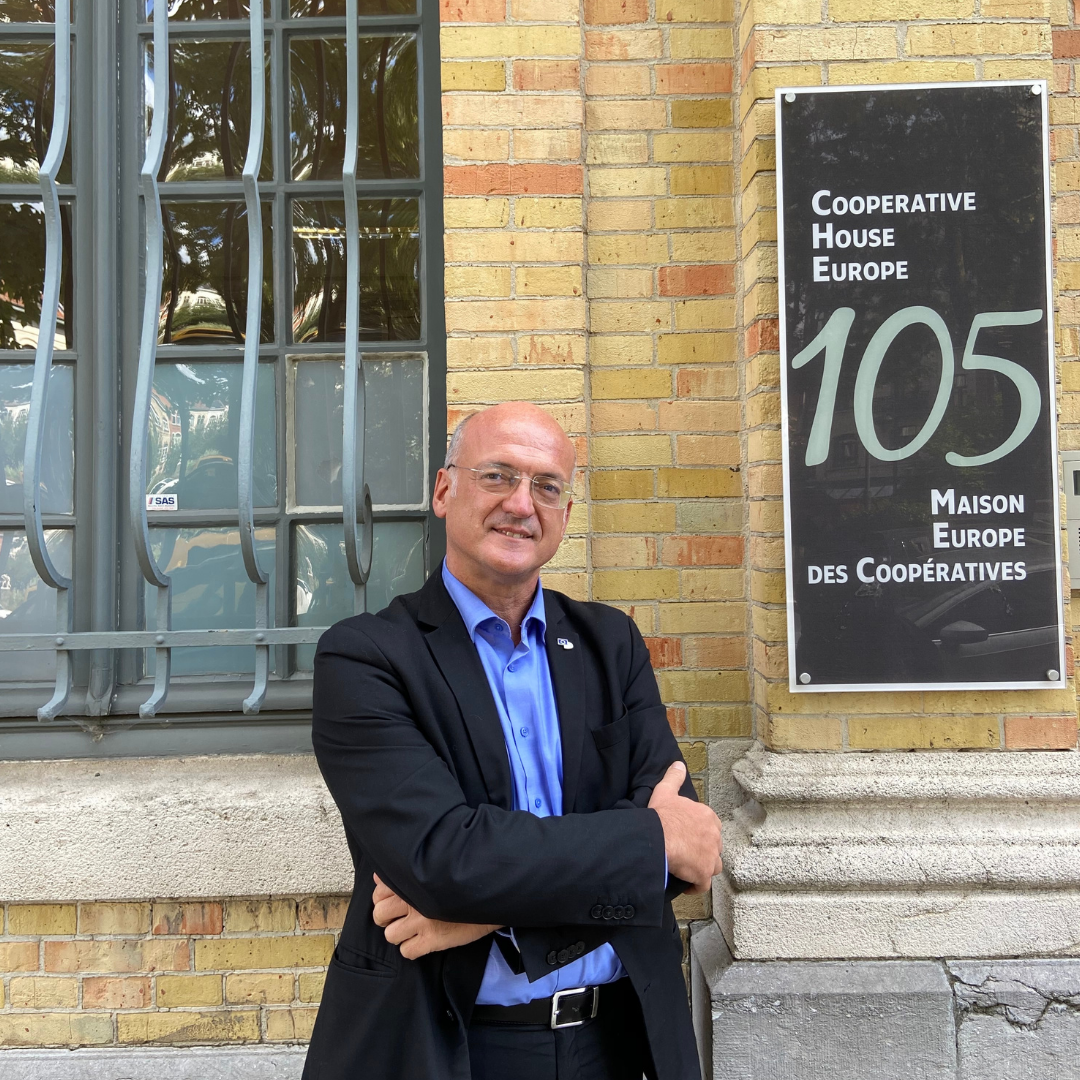Op-ed by Giuseppe Guerini, President of CECOP

Worker and social cooperatives provide well-paying jobs to their worker-members and often support the most vulnerable members of society by providing social services and integration through work: In short, they help to fight poverty. Poverty eradication and reversing the worsening inequalities are intertwined simply because they are the two faces of the same coin. But the challenge goes beyond that: We need to change an economic model that continues to grow more perverse and distorting.
These two themes: the fight against poverty and reversing the ever-growing rate of inequality, can no longer be treated as separate matters, not only because they are the two sides of the coin of an economic model that appears increasingly perverse and distorting. But also, because any program to tackle poverty, no matter if it is regional, national, or international, will be powerless to fill such a disproportionate gap.
At the beginning of the pandemic, it seemed that the virus did hit rich countries as bad as – or even worse – than less developed countries. Some initially discussed the pandemic as a ‘great equalizer’. However, today we know that this is not the case, and different people are hit very differently by this crisis.
But this is not unique to this crisis: Over the last years, we learned that crises deepen inequalities: the financial crisis in 2008, the Eurozone crisis, and now the COVID pandemic impacted the poor much more severely and with longer lasting consequences than the rich. During the pandemic, the poorest have been affected the most, while the world’s wealthiest, not only suffer less, but many profited. The number of billionaires grew, the richest persons on the planet became even richer. This of course comes at the cost of the middle class. How high the price is that small business owners, traders, and craftsmen had to pay during this pandemic. Many middle-class persons are now at risk of falling into poverty.
However, neither the crisis, nor the pandemic cause the inequality, but rather the economic model that we continue to consider successful, based on an idea of unrestrained liberalism, on exasperated competition, on the complete freedom of movement of capital, and on the celebration of the profit as end and not as means to achieve the progress.
The economic model of Europe – and in many other regions - essentially relies on strong deregulation and fierce tax competition between countries, especially in single markets as it is the case in Europe. The EU pursues an ideal of a single market and of a social Europe but tolerates that several internal tax havens flourished. Some countries offer lower taxes for companies, and there are a range of mechanisms that allow to declare profits in places with the lowest taxation and not where business is done. This enabled multinationals to choose the most profitable tax regime for them, exploiting the single market. That is, they do business all over Europe but pay taxes where it is cheaper. The price of these tax rebates is then paid by workers and small businesses that are rooted in their communities. If you pay your fair share as an enterprise, you are at a disadvantage compared to those who don’t contribute to the prosperity of their communities. Politicians need to understand that we can’t accept this any longer: The question of tax equity needs to be addressed now. Attributing growing inequalities to extraordinary situations like this pandemic falls short of a meaningful fight against inequalities!
The social economy should actively campaign for an adequate level of tax equity. Not only towards our national governments, but also at the European and international level. Otherwise, the risk is that, as Pope Francis said, the social economy and the third sector are a "stopgap measure" that intervene to cure, but that do not manage to transform and change a model of development that allows for a continuous concentration of wealth. Finally, we should put to bed the 80’s lie that justifies the continued reduction of tax on wealth and elevated income. Fueling the false belief that less taxes on wealth would have favored a greater growth, that then it would be translated into a spread of welfare. But recent research such as the study of Dr Hope and Dr Limberg from the London School of Economics and King’s College London shows the opposite. Between the end of the second war world and the 1980s, the Western countries had seen the most sustained and extensive period of economic growth and emergence from poverty of large sectors of the population, the two countries mentioned as drivers and as cradles of democracy, economic progress and free market are: US and UK. They were applying a tax rate of 81% and 86%, respectively on great wealth. Today, these tax rates are only a fraction of that, without creating the promised effects on growth.
This figure alone shows that not always and not automatically the taxation of great wealth hinders the economic growth but analyzing the data would seem true on the contrary. I think that is really the time to reaffirm with force "if not now when?". We need to be the protagonists who fight for a strong social Europe and equitable taxation system across Europe in which everyone pays their fair share to allow their communities to grow.







 Employment & Social Inclusion
Employment & Social Inclusion  Sustainable Growth
Sustainable Growth 

